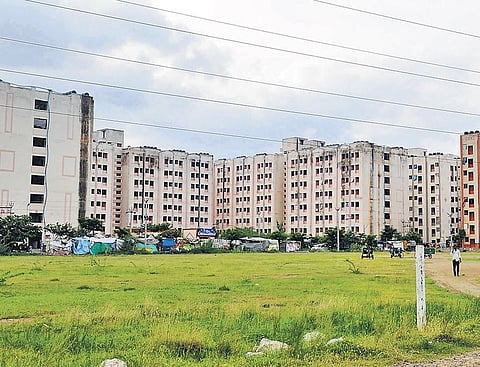

CHENNAI: Married women in the Tamil Nadu Slum Clearance Board tenements in Perumbakkam believe there has been a 64% decrease in their safety during natural calamities after their resettlement, an academic study undertaken last month has found.
The study taken up by three students pursuing post graduation in social work (mental health) in the Banyan Academy of Leadership in Mental Health (BALM) surveyed 50 married women in the resettlement site in Perumbakkam in an attempt to assess how their lives have changed after resettlement. All of those surveyed were resettled within the last year.
“We chose to survey married women because gender plays a major role in creating inequalities and in our perspective, marriage furthers this inequality,” said Suma Perumal, one of the students who took up the study.
The women reported a 15% decrease in their physical safety after resettlement when compared to their earlier dwellings, mostly within the city limits, the study found. After being resettled, around 30% of the women felt they did not have a trusted network of friends and family that they did prior to resettlement.
There was also a 65% decrease in supportive networks of people who had been able to help them financially before resettlement. The study also noted a 23% decrease in the financial well being of those surveyed.
“However, we did notice that there were drastic improvements to impersonal relationships -- for instance, the residents knew whom to approach for any issues related to water or electricity, after resettlement,” Suma said.
The aspects that saw a positive change after resettlement were improvement to their well being due to access to toilets (66.6% increase) followed by access to electricity (40.5% increase) and water supply (13.5% increase). There was also a marked increase in the people who felt that with regular electricity supply, their physical strain had reduced after resettlement.
The study recommended social celebrations and gatherings to help people socialise and form lasting bonds with others in the community, apart from a telemental health portal for residents in the resettlement site.
“During the pandemic, there is an increased need for mental healthcare but the access to it is decreasing. The mental health helpline that is being suggested is aimed at providing basic counselling services and mental healthcare for those in need. This will help their mental well being,” said Sangeetha, another student who took up the survey.